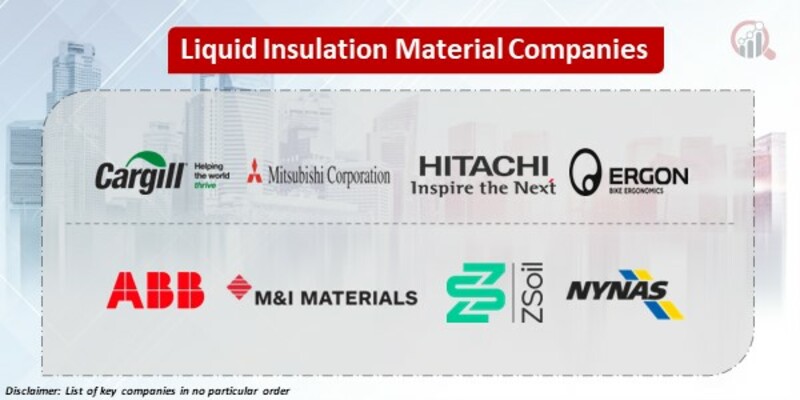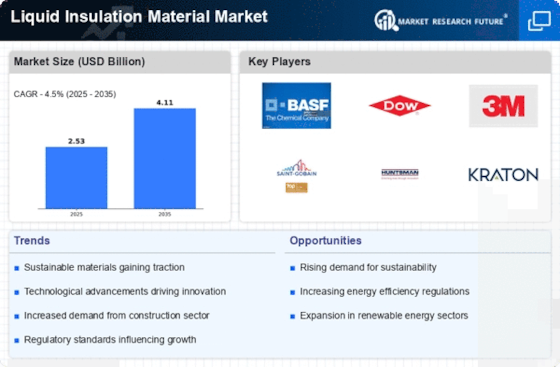Top Industry Leaders in the Liquid Insulation Material Market

The liquid insulation material market is simmering with innovation and competition, driven by the rising demand for energy efficiency and thermal management solutions across various industries. With a projected CAGR of over 6.5%, this market promises exciting opportunities for established players and new entrants alike.
Strategies Shaping the Market:
-
R&D Focus: Leading players like Cargill, ABB, and Hitachi are heavily investing in research and development to enhance the performance and sustainability of liquid insulation materials. This includes developing bio-based formulations, improving thermal conductivity, and lowering environmental impact. -
Product Diversification: Expanding product portfolios to cater to diverse application needs is a crucial strategy. Companies like Nynas AB offer a range of mineral oil-based and synthetic liquid insulators for transformers, switchgear, and other electrical equipment. -
Geographical Expansion: Established players are venturing into emerging markets with high growth potential, particularly in Asia-Pacific and Latin America. This involves setting up production facilities, forging partnerships with local players, and tailoring product offerings to regional needs. -
Sustainability Initiatives: Environmental concerns are driving the adoption of bio-based and biodegradable liquid insulation materials. Companies like Greenwave Technologies are developing innovative solutions like vegetable oil-based transformer fluids. -
Market Consolidation: Mergers and acquisitions are becoming increasingly common, as players seek to expand their market share and gain access to new technologies and resources.
Factors Driving Market Share:
-
Brand Reputation and Track Record: Established players with a strong brand reputation and proven track record in the industry hold a significant advantage. They often have access to superior technology, established distribution networks, and strong customer relationships. -
Product Differentiation and Innovation: Offering unique and innovative liquid insulation materials with superior performance characteristics can help companies stand out from the crowd and attract customers. This includes focusing on factors like thermal conductivity, fire resistance, biodegradability, and environmental impact. -
Cost-Competitiveness and Pricing Strategies: The price of liquid insulation materials is a major factor influencing purchasing decisions. Companies need to find the right balance between offering competitive prices and maintaining profitability. Offering customized solutions and volume discounts can also be effective strategies. -
Geographical Presence and Distribution Networks: Having a strong global presence and well-established distribution networks are crucial for reaching a wider customer base and ensuring timely delivery. This is particularly important for serving geographically dispersed end-use industries. -
Regulatory Compliance and Certifications: Meeting stringent regulatory requirements and obtaining relevant certifications is essential for operating in the liquid insulation material market. This ensures the safety, quality, and environmental compatibility of the products.
Key Companies in the Liquid Insulation Material market include
- Cargill
- Mitsubishi Corporation
- Hitachi
- ABB
- Guangrun Shida
- M&I Materials
- ZDOIL
- Nynas
- Petro China
- Ergon
Recent Developments:
-
October 2023: Mitsubishi Electric announces the development of a new type of liquid insulation material with improved fire resistance and thermal conductivity. -
November 2023: Shell launches a new line of bio-based transformer fluids made from vegetable oil, targeting the European market. -
December 2023: ABB and Siemens collaborate on a joint research project to develop next-generation liquid insulation materials for high-voltage applications.











